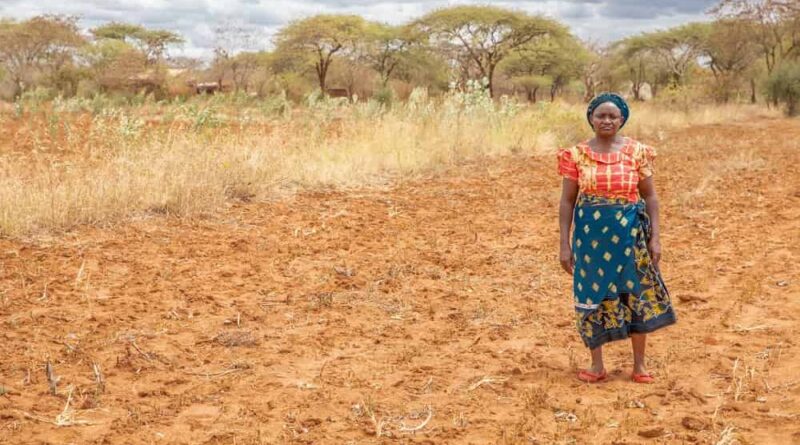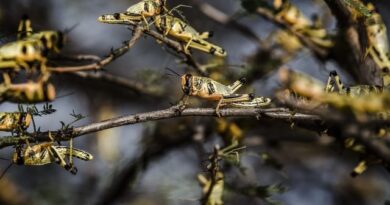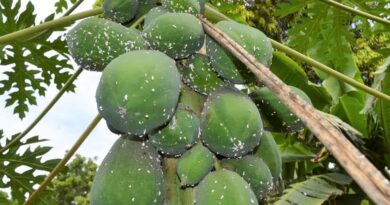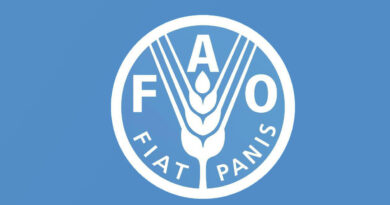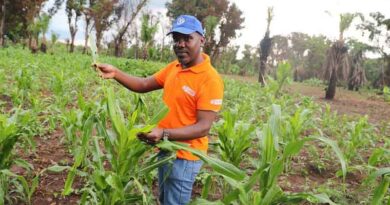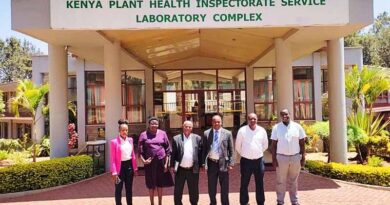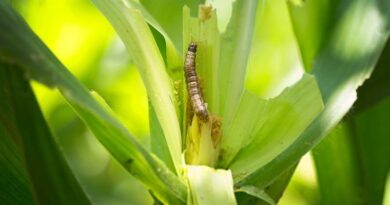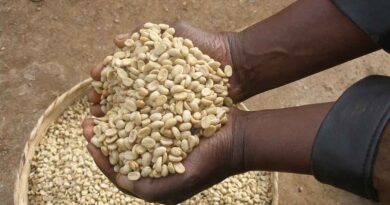More than 5 million farmers helped in bid to battle scourge of locust swarms in Kenya and Ethiopia
26 October 2020, Nairobi, Kenya: CABI development communications experts have joined forces with the Mercy Corps AgriFin programme to reach over 5 million farmers in Kenya and Ethiopia with advice on how to identify and tackle locust swarms which threatened to destroy their crops.
Also Read: Nichino America Inc. Establishes a Subsidiary in Mexico
Staff working from CABI’s Africa Centre in Nairobi, Kenya, teamed up with the Skoll Foundation-funded AgriFin programme – in conjunction with Ethiopia’s Agricultural Transformation Agency (ATA) to roll out a mass multimedia awareness campaign using TV, radio, print, online and mobile text messaging.
This was in addition to a call for citizen reporting of locust locations by farmers via SMS, WhatsApp, call centre and mobile-interactive voice response (IVR) hotlines which were linked to the aims of the eLocust3m app to track and monitor Desert locust across its range. The Pennsylvania State University PlantVillage team worked closely with Mediae on TV call to action content for the Shamba Shape Up Program viewed by 6 million farmers and to then validate the data collected from these new digital channels.
By working closely with partners including the Food and Agriculture Organization of the United Nations (FAO), the Desert locust Control Organisation for Eastern Africa (DLCOEA), the International Centre of Insect Physiology and Ecology (ICIPE) and respective governments, the campaign made a major contribution to the monitoring and reporting efforts needed for the effective management of the locust pest.
The campaign design was also informed by a new CABI report ‘Emergency Response Programming: Content Development on Desert locusts’ which outlined approaches to raise mass awareness to help millions of smallholder farmers correctly identify the Desert locust and their feeding and migratory behaviour, promote the safe use of pesticides and minimise public exposure to aerial spraying and deliver factual information to ‘debunk’ myths including the swarms being an ‘act of God.’
Also Read: Birmingham led research promises water boost for farmers in India
Around 20 million people in Ethiopia, Kenya, Somalia, South Sudan, Uganda and Tanzania are faced acute food insecurity, according to the FAO, due to a second desert locust outbreak and the COVID-19 crisis.
Locusts and grasshoppers regularly decimate crops in many parts of Africa and Asia with locusts, in particular, responsible for invading in swarms of millions – leaving behind ravaged fields and putting livelihoods and food security at severe risk.
As outlined in the report, by David Onyango, Lucy Karanja and Henry Mibei, the Desert locust remains a key threat to food security across Eastern Africa – unless mitigation measures are put in place to track and combat them – with additional pressures exacerbated by efforts to cope with the coronavirus pandemic.
Mr Onyango, Communications Specialist at CABI, said, “Tackling threats of a dangerous pest like the Desert locust, whose spread is fast, requires speed and wide-scale awareness through emergency communication using validated,
actionable, farmer-friendly information to support monitoring, reporting and management efforts.
Also read: Stronger international promotion of natural pest control in association with BioProtection Global
“CABI, ATA and Mercy Corps AgriFin leveraged a wealth of organisational experience in packaging scientific content into actionable farmer-friendly insights and pivoted on the intersection between agriculture and technology to develop Desert locust content and that will not only educate farmers and the general public but also support monitoring and reporting of swarms in Ethiopia.”
Among the materials created were eight radio spot messages, 50 mobile SMS messages, television talking points and a 10-minute video script developed for us by ATA and Mercy Corps in Ethiopia.
This was then pre-tested via the CABI-led Plantwise plant doctor telegram network in Kenya, with feedback from the plant doctors and farmers being incorporated back to enrich the content.
Co-author Ms Karanja, Content Manager at CABI, said, “Building on earlier efforts between CABI and Farm Radio International (FRI) that developed a Desert locust radio resource pack for use by community radio stations in East Africa, CABI reviewed existing Desert locust radio spots, incorporating feedback from ATA and Mercy Corps in Ethiopia.”
The radio spot messages were harmonised to ensure they were consistent with the Ministry of Agriculture recommendations. This included ensuring the radios spot message framing remained sensitive to the Ethiopian culture.
Mr Mibei, co-author and Manager, Digital Development at CABI, said, “The messages also explained that Desert locusts were not known to directly attack humans or livestock, were edible in some countries, explained the correlation between locust and perceived good harvests, the Desert locust damage to crops and plants, use of loud noises as a management strategy and the Desert locust outbreak intervals.”
The CABI team continues to participate in weekly Desert locust partner coordination calls organised by Mercy Corps giving periodical updates and sharing experiences. A project to use drones for the spraying of Desert locusts is also initially being trialled in Kenya with the potential to scale out to other affected African countries.
In addition, CABI and international biological control producers Éléphant Vert are continuing to step up the fight against crop-destroying locusts and grasshoppers with a safe and environment friendly product called Green Muscle™ which is now being used in Africa. The product has been proven to work better than chemicals – provided it is applied on time to hopper bands before swarming starts.

